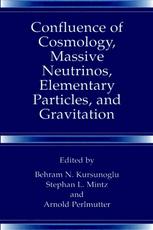

Most ebook files are in PDF format, so you can easily read them using various software such as Foxit Reader or directly on the Google Chrome browser.
Some ebook files are released by publishers in other formats such as .awz, .mobi, .epub, .fb2, etc. You may need to install specific software to read these formats on mobile/PC, such as Calibre.
Please read the tutorial at this link: https://ebookbell.com/faq
We offer FREE conversion to the popular formats you request; however, this may take some time. Therefore, right after payment, please email us, and we will try to provide the service as quickly as possible.
For some exceptional file formats or broken links (if any), please refrain from opening any disputes. Instead, email us first, and we will try to assist within a maximum of 6 hours.
EbookBell Team

4.7
36 reviewsJustbefore the preliminary programof Orbis Scientiae 1998 went to press the news in physics was suddenly dominated by the discovery that neutrinos are, after all, massive particles. This was predicted by some physicists including Dr. Behram Kusunoglu, who had apaper published on this subject in 1976 in the Physical Review. Massive neutrinos do not necessarily simplify the physics of elementary particles but they do give elementary particle physics a new direction. If the dark matter content ofthe universe turns out to consist ofneutrinos, the fact that they are massive should make an impact on cosmology. Some of the papers in this volume have attempted to provide answers to these questions. We have a long way to go before we find the real reasons for nature’s creation of neutrinos. Another neutrino-related event was the passing of their discoverer, Fredrick Reines: The trustees of the Global Foundation, members of the Orbis Scientiae 1998, dedicate this conference to Fredrick Reines of the University of California at Irvine. The late Professor Reines was a loyal and active member of these series of conferences on the frontiers of physics and cosmology since 1964. He also sewed as one of the trustees of the Global Foundation for the past three years. Professor Reines discovered the most elusive particle, the neutrino, in 1954. We are proud to say that we recognized the importance of this discovery by awarding him the J.